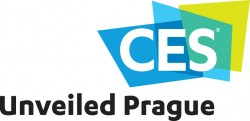Building Blocks of the Future 2016 in Dresden to present innovations in nanotechnologies
13 Jun. 2016 | CzechInvest | The Czech Republic and Germany are intensifying cooperation in the nanotechnology industry
Czech and German entrepreneurs will present advances in nanotechnology research and commercial use thereof in Dresden on Tuesday, 14 June 2016. Representatives of researchers and firms from both countries and a representative of the Swedish partner region Skåne will focus on business using nanotechnologies in the energy and medical sectors as well as the impact of nanotechnologies on modern analytical tools and materials science.
Organised by CzechInvest in cooperation with Germany Trade and Invest, the Czech embassy in Berlin and Fraunhofer IWS, the nanotechnology workshop is the second event of this kind. The first nanotechnology conference was held last year in Prague. The purpose of the event is to support and strengthen cooperation between Czech and German firms and to share experience with commercialisation of nanotechnologies.
The Czech Republic can establish cooperation with Germany in nearly all fields using nanotechnologies. Czech companies comprise one of the incubators in the area of nanofibres and are among the top players in the world in the fields of microscopy and optics. TESCAN ORSAY HOLDING, CRYTUR and IQ Structures are only a few examples of Czech companies that excel in this area. Photocatalytic paint with air-purifying titanium-oxide nanoparticle is another very promising product being developed here by Advanced Materials – J.T.J. Czech nanotechnology can also be used in healthcare; the company Nanopharma is participating in the development of new organs and wood-healing bandages, while nanotechnologies are used for storing energy in 3D batteries developed by the firm HE3DA and for decontamination of wastewater, on which the companies Nano Iron and Asio are focused.
“This year we’re organising Building Blocks of the Future for the second time and definitely not for the last time. Nanotechnologies are a major current trend and it is very important for the countries involved to share their findings and experience with the development and commercial use of these technologies,” says Jiří Fusek of CzechInvest.
Germany excels in the field of nanotechnologies particularly thanks to its extensive experience with commercialisation of new research and development findings. Traditional representatives of German industry such as Daimler, Carl Zeiss, Siemens and BASF are finding interesting uses for nanotechnologies and are pushing the sector forward significantly. German nanotechnologies also hold a unique position in, for example, organic electronics and new carbon-based materials.
“Nanotechnology has now turned from the hype phase to a hidden champion. One can say that it is definitely worth having a second look at the opportunities that will lie ahead when commercialising nano-based solutions,” said Rainer Mueller, Senior Manager Nanotechnology Germany Trade & Invest.
Detailed information is available on the web portal at www.buildingblocks2016.eu.









